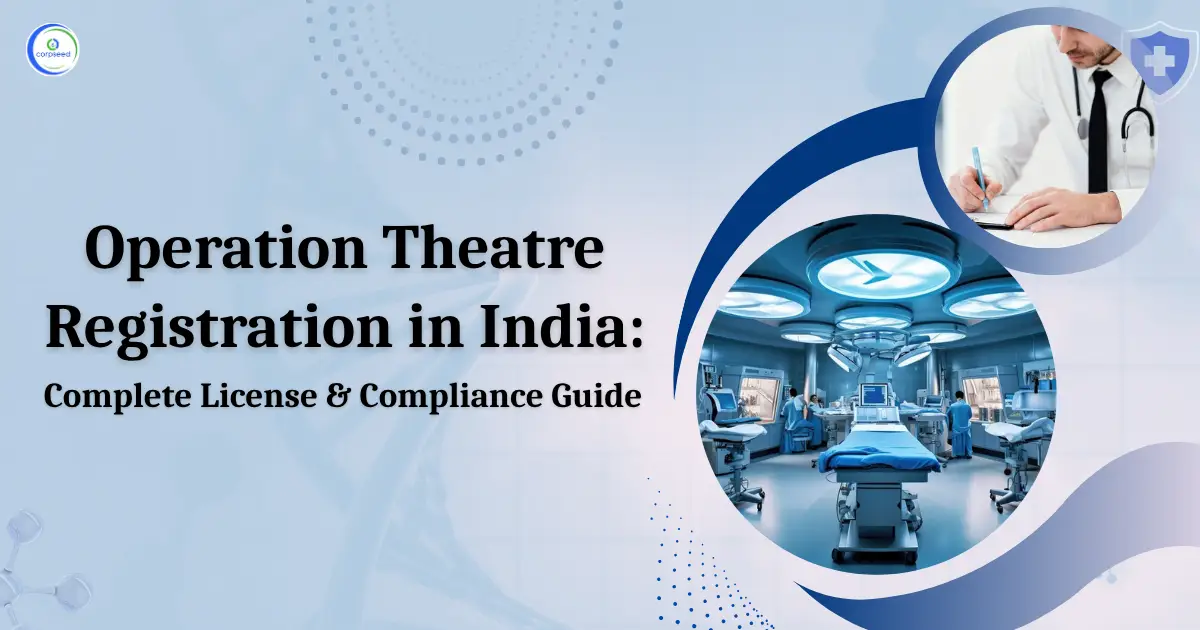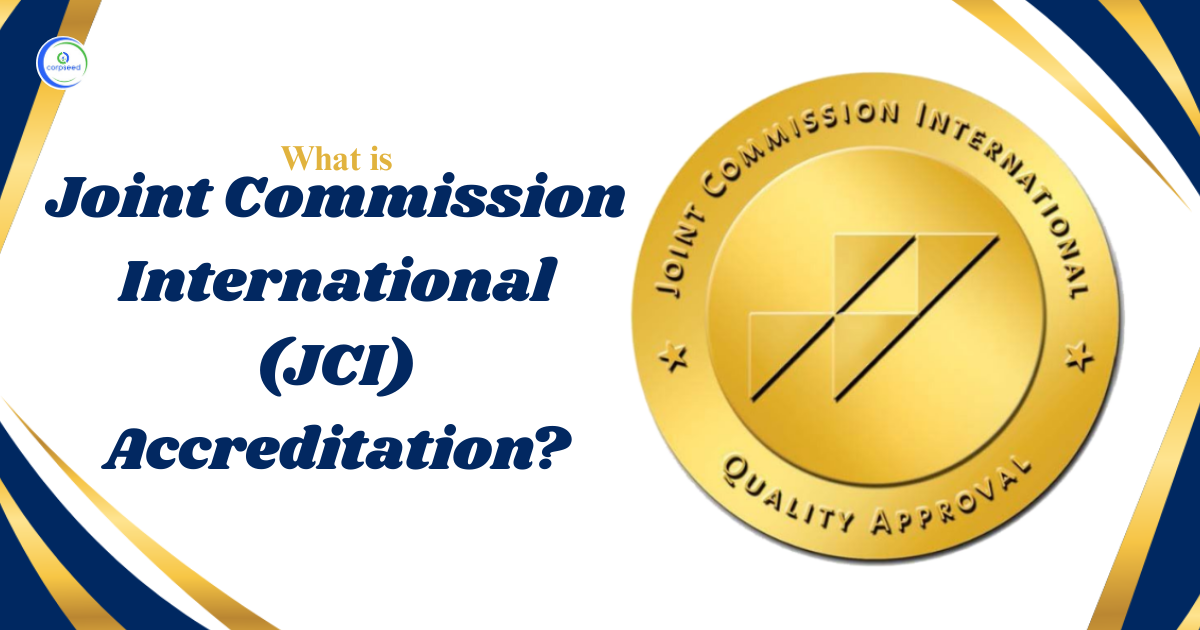Starting a healthcare facility needs proper compliance with safety and legal norms. Among all the other things, the most crucial one is the operation theatre registration. Hospitals that perform surgeries are required to have a valid registration or approved operation theatre (OT) under the state or national health regulations. Having an operation theatre license not only maintains compliance with the Clinical Establishment Act (CEA) and NABH guidelines, but it also ensures the safety of the patient and proper hygiene.
Table of Contents
- What Is Operation Theatre Registration?
- Why Operation Theatre Registration Is Important
- Eligibility for Operation Theatre Registration
- Documents Required for Operation Theatre Registration
- Operation Theatre Registration Process Step by Step
- NABH Standards for Operation Theatre Design
- Operation Theatre Safety Standards and Equipment
- Common Compliance Requirements
- Conclusion
What Is Operation Theatre Registration?
Operation theatre registration is the formal approval process for hospitals or healthcare facilities to legally operate surgical units. It ensures that the OT meets infection control standards, infrastructure norms, and safety protocols prescribed by health authorities.
The process verifies that the facility is equipped with the necessary surgical instruments, sterilization systems, and qualified staff to ensure safe patient care.
In India, OT registration is regulated under the Clinical Establishment Act, 2010 (CEA) or the respective state health department rules.
Why Operation Theatre Registration Is Important
Having an operation theatre license is mandatory, it is important for maintaining healthcare quality and also ensures reliability. Some of its key importance are:
- Patient Safety & Infection Control: Getting a valid approval for operation theatre guarantees strict safety and sterilization standards, which also minimizes the risk of infection and promotes surgical safety.
- NABH Compliance: A registered operating theatre aligns hospitals with NABH standards, ensuring appropriate design, air filtration, safety equipment, and process control for quality healthcare delivery and better surgical performance.
- Legal Compliance: Securing an operation theatre registration helps meet the compulsory conditions under the Clinical Establishment Act (CEA), permitting hospitals to function legally while fulfilling national healthcare quality and safety standards.
- Builds Credibility: Having a licensed operation theatre creates trust and reliability among patients and authorities. It demonstrates the hospital’s commitment to safe surgical care and consistent medical practices.
- Reduces Legal Risks: A valid hospital operation theatre license avoids penalties, fines, licence suspension, or permanent closure of the healthcare facility. It also guarantees the hospital complies with medical laws and maintains long-term stability.
- Enables Accreditation & Insurance: Hospitals with registered operation theatres can easily get NABH accreditation and insurance empanelment, refining access to funding, partnerships, and acknowledgement in the healthcare sector.
--------------Blog Contact Form-------------
Eligibility for Operation Theatre Registration
The eligibility criteria can differ depending on the region but it will align with the NABH standards for operation theatre design. To apply for operation theatre registration in India, the Hospitals must:
- Be a registered hospital, nursing home, or clinic.
- Have a valid Clinical Establishment registration.
- Ensure the OT fulfils minimum space, design, and ventilation guidelines.
- Employ qualified surgeons, anaesthetists, and nursing staff.
- Maintain appropriate equipment and sterilization systems.
Documents Required for Operation Theatre Registration
To get the registration, hospitals are required to submit certain documents to the state medical council or to local healthcare authority. To fasten the process gather all the necessary documents. Some common documents include:
- Application form for operation theatre license.
- Copy of hospital registration under CEA.
- Layout plan of the operation theatre with dimensions.
- List of OT equipment and instruments.
- Details of qualified medical staff.
- Sterilization and waste disposal protocols.
- Fire and bio-medical waste management certificates.
- NOC from the Pollution Control Board and Fire Department.
Operation Theatre Registration Process Step by Step
The following is the step by step procedure to apply for operation theatre registration in India:
- Application Submission: The hospital or clinic are required to submit an application to the State Health Department or District Chief Medical Officer (CMO) office.
- Document Verification: Attach the necessary documents along with the application. The submitted documents will be thoroughly reviewed for accuracy and completeness.
- Site Inspection: After documentation an inspection team will visit the healthcare facility to check the operation theatre arrangement, safety standards, and equipment.
- Compliance Review: The team ensures that the OT adheres with NABH operation theatre requests and hospital infrastructure standards.
- Approval & License Issuance: After successful inspection, the authority issues an operation theatre license or registration certificate.
- Periodic Renewal: In India Licenses are usually valid for between 1 to 3 years after that renewal is required, depending on local regulations.
NABH Standards for Operation Theatre Design
The following NABH (National Accreditation Board for Hospitals & Healthcare Providers) standards guarantees quality healthcare delivery. These standards are crucial for operation theatre approval and accreditation. Key NABH operation theatre design standards are:
- Minimum floor area per OT (generally 25-30 sq. meters).
- Proper air filtration (HEPA) and ventilation systems.
- Separate sterile and unsterile zones.
- Temperature and humidity control.
- Anti-static flooring and washable wall surfaces.
- Backup power supply and oxygen pipeline.
- Adequate lighting and fire safety systems.
Compliance with these standards helps hospitals gain NABH accreditation and boosts patient safety results.
Operation Theatre Safety Standards and Equipment
Maintaining operation theatre safety standards is vital to prevent the spread of infections and ensure surgical efficiency. Essential operation theatre equipment list includes:
- Surgical table and shadowless lamp.
- Anaesthesia machine and ventilator.
- Defibrillator and patient monitor.
- Suction apparatus and autoclave.
- Oxygen cylinder and pipeline system.
- Sterilizers and scrub stations.
- Biomedical waste disposal setup.
Also Read: CDSCO Registration for Operation Theatres Medical Devices
Operation Theatre Setup Registration Cost and Time
The cost of operation theatre registration depends on the size of the hospital, state fees, and documentation needs. Usually, application and inspection fees range between INR 10,000 to INR 50,000.
The approval time differs between 30 to 90 days, depending on document extensiveness and inspection calendars.
Common Compliance Requirements
Compliance guarantees smooth operations and helps prevent legal disputes during audits or inspections. Hospitals must comply with the following operation theatre compliance standards:
- Maintain proper record keeping and logbooks.
- Regularly check sterilization and disinfection systems.
- Implement fire safety and biomedical waste management.
- Conduct periodic training for OT staff.
- Renew operation theatre NOC and registration on time.
Conclusion
Obtaining an operation theatre registration in India is one of the most vital step of setting up the hospital and staying compliant. It makes sure the healthcare facility fulfills safety, hygiene, and infrastructure standards under the Clinical Establishment License and NABH norms.
Following the correct operation theatre license procedure, maintaining safety norms, and updating timely renewals helps hospitals build reliability, trust among their customers and enhance operational efficiency.
Whether you are starting a new healthcare facility or upgrading your existing one, compliance with the operation theatre approval and NABH operation theatre requirements ensures safe surgeries and improved healthcare outcomes for patients.
FAQ`s
Most OT licenses are valid for 1 to 3 years. The exact duration depends on the state and the type of hospital.
It’s best to renew before it expires. This keeps surgeries and operations running smoothly without any legal trouble.
Hospitals need the renewal form, updated staff and equipment info, and proof that the OT still follows NABH and CEA rules.
No. Running an OT without a valid license can lead to fines, legal action, or even closure.
This portion of the site is for informational purposes only. The content is not legal advice. The statements and opinions are the expression of author, not corpseed, and have not been evaluated by corpseed for accuracy, completeness, or changes in the law.
BOOK A FREE CONSULTATION
Get help from an experienced legal adviser. Schedule your consultation at a time that works for you and it's absolutely FREE.









